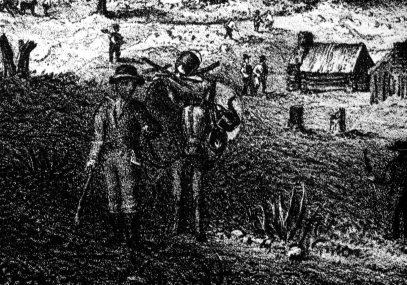BLACK STEVE
Information on a personality.

Drawing of 1852 wood cabins at Maine Gulch, Columbia's winter-made "river"
where todays south parking lot is currently.
STEPHEN SPENCER HILL

(The following account follows John Jolly's diary)
A Brief History of Stephen Spencer Hill
Fugitive from Labor by Carlo M. De Ferrari

